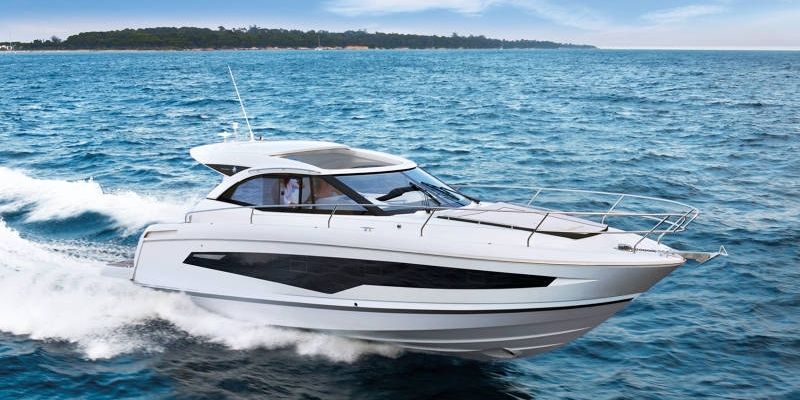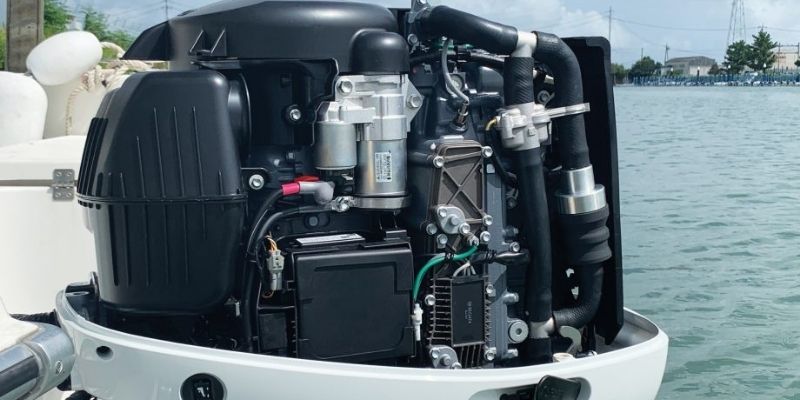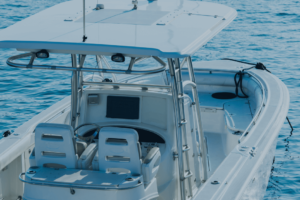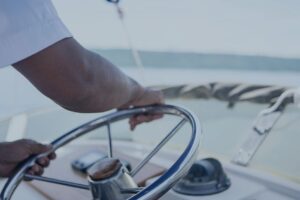I’ll leave it to you to decide as to whether after reading this blog you find yourself bobbing around on the ocean of the past or the present, which might even have prompted some thoughts about your future, like which boat you’re going to buy. There will be no doubts in your mind, however, about the following section of this blog.
News: History of Motorboats
The earliest boat to be powered by a petrol engine was tested on the Neckar River by Gottlieb Daimler and Wilhelm Maybach in 1886, when they tested their new "longcase clock" engine. The engine of this boat had a single cylinder of 1 horse power. Daimler's second launch in 1887 had a second cylinder positioned at an angle of 15 degrees to the first one, and was known as the "V-type".
The first successful motor boat was designed by the Priestman Brothers in Hull, England, under the direction of William Dent Priestman. The company began trials of their first motorboat in 1888. The engine was powered with kerosene and used an innovative high-tension (high voltage) ignition system.
Another early pioneer was Mr. J. D. Roots, who in 1891 fitted a launch with an internal combustion engine and operated a ferry service between Richmond and Wandsworth along the River Thames during the seasons of 1891 and 1892.
The eminent inventor Frederick William Lanchester recognized the potential of the motorboat and over the following 15 years, in collaboration with his brother George, perfected the modern motorboat, or powerboat. Working in the garden of their home in Olton, Warwickshire, they designed and built a river flat-bottomed launch with an advanced high-revving engine that drove via a stern paddle wheel in 1893. In 1897, he produced a second engine similar in design to his previous one but running on benzene at 800 rpm. An important part of his new engine was the revolutionary carburettor, known as a "wick carburettor", because fuel was drawn into a series of wicks, from where it was vaporized.
Boating News from Jeanneau

It is the 35th anniversary of the LEADER which, as Jeanneau quite rightly say on their website is a real leader in boats, is marked by notable evolutions in interior decoration.
A true day boat, as well as a cabin cruiser for outings with family and friends, the hull and interior design of the Leader has remained in constant evolution to remain current and to anticipate trends, notably for day boating. The newest models of the Leader line, very spacious and open to the sea, are increasingly turned toward the exterior and in touch with the natural elements.
For instance, the Leader 36 is offered with a new wood, “White Oak,” and a new fabric selection for upholstery and cushions. A new Cockpit Lounge version of the Leader 36 is also available, offering a very comfortable, generously enlarged cockpit, with the ability to easily transform the aft bench seating into a magnificent sundeck.
Synonymous with elegance, luxury, and performance, Leader powerboats boast a distinctive design and a sporty character. These EXPRESS inboard models with high-performance hulls marry comfortable exterior living spaces with innovative interior layouts. Their contemporary style invites relaxation.
See for yourself and discover the LEADER line here: https://www.jeanneau.com/en-gb/boats/powerboat/8-leader/
Brexit Boating News
The Royal Yacht Institute (RYA) is carrying out sterling work to try and ensure that the British boating public are not disadvantaged in any way as a result of having have followed the rules and utilised the four freedoms (free movement of people, capital, goods and services) that were available to them as a result of the UK’s membership of the EU. To quote their website: “The EU-UK Trade and Cooperation Agreement, reached on 24 December 2020, forms the basis for the future relationship between the UK and the EU. However, in terms of the issues that the RYA has been working on since the referendum, this agreement has made little if any difference.”
There is a vast amount of information available on the RYA website on this topic of post Brexit boating issues, and it is well worth the time and effort to read about the issues that they are championing for all UK nationals and residents. (https://www.rya.org.uk/knowledge-advice/current-affairs/Pages/Brexit.aspx)
Topics include the following subjects:
- UK Customs and VAT issues
- Northern Ireland
- Geographical penalties
- Inadequacy of Returned Goods Relief
- Border Controls
- Using RYA Qualifications to work in the EU
- Advice and Guidance
- Lobbying your MP
- Government ‘Brexit: new rules are here’ Guidance
- Latest Updates
Boating News Snippets from Around the World
Suzuki tackles micro-plastics with world-first outboard filtering device
(Motor Boat & Yachting - January 28, 2021)
Suzuki has developed what it claims to be the world’s first Micro-Plastic Collecting Device for installation on outboard motors.
Marine waste is a growing environmental issue with a huge amount of discarded plastic flowing into the oceans each year. The waste then breaks down into micro-plastics in the ocean’s ecosystem, significantly impacting marine life.
A large outboard is constantly pumping large quantities of seawater through the engine to cool the oil and cylinders before returning it to the ocean. Suzuki has now developed a filtering device, which collects the micro-plastic waste from the water whenever the engine is running. It can easily be installed to the return hose with no other modifications needed and does not affect performance since it only filters water that has already been used to cool the engine.
Suzuki plans to introduce the device as optional from 2021 and incorporate it as a standard feature on all its engines in the future, but the price has yet to be confirmed.
Düsseldorf Boat Show 2021 cancelled due to COVID-19 infection rates
The Dusseldorf Boat Show was due to be held from the April 17th to April 25th has been cancelled. In a statement, CEO of organisers Messe Düsseldorf GmbH, Wolfram N. Diener, said:
“The continuing high level of infection and the fact that the end of the lockdown is not foreseeable for the time being make a resumption of trade fair operations at the end of April appear increasingly unrealistic.”
Messe Düsseldorf revealed the scheduled dates for the next Düsseldorf Boat Show as 22-30 January 2022.
The 2021 Miami Boat Show, originally scheduled for February 11-15, was cancelled at the end of October, leaving the 2021 Dubai Boat Show (March 9-13) as the next major event in the international boat show calendar.
National Marine Manufacturers Association (NMMA) outlines Fiscal Year 2022 federal funding priorities
(Boating Industry - February 11, 2021)The appropriations process sets the spending levels at every agency in the federal government, and is an opportunity to improve initiatives and programs that are critically important to marine manufacturers, small businesses, and the entire recreational boating community.
The programs outlined in NMMA’s appropriation request promote and protect boating access, restore critical marine ecosystems, invest in alternative technology research, and support local economies that depend on the recreational boating industry.
NMMA’s FY22 priorities include:
- Improving and expanding public boating access;
- Restoring vital ecosystems from the Florida Everglades to the Great Lakes;
- Investing in next generation marine propulsion and alternative fuel research;
- Combatting Asian carp and other aquatic invasive species;
- Streamlining permitting for marinas to address infrastructure needs.



